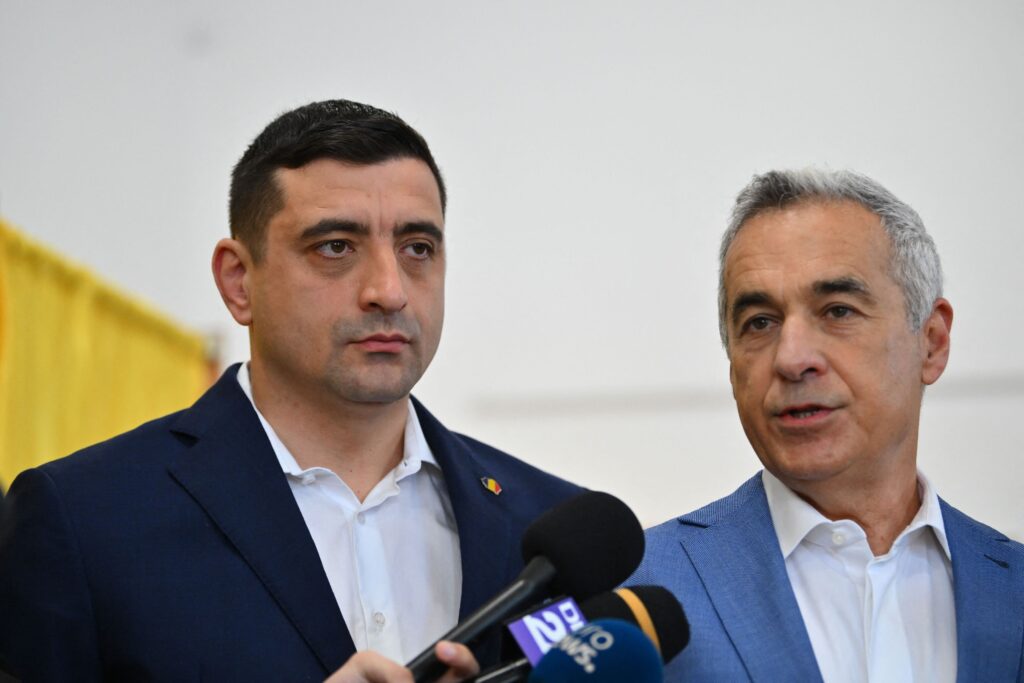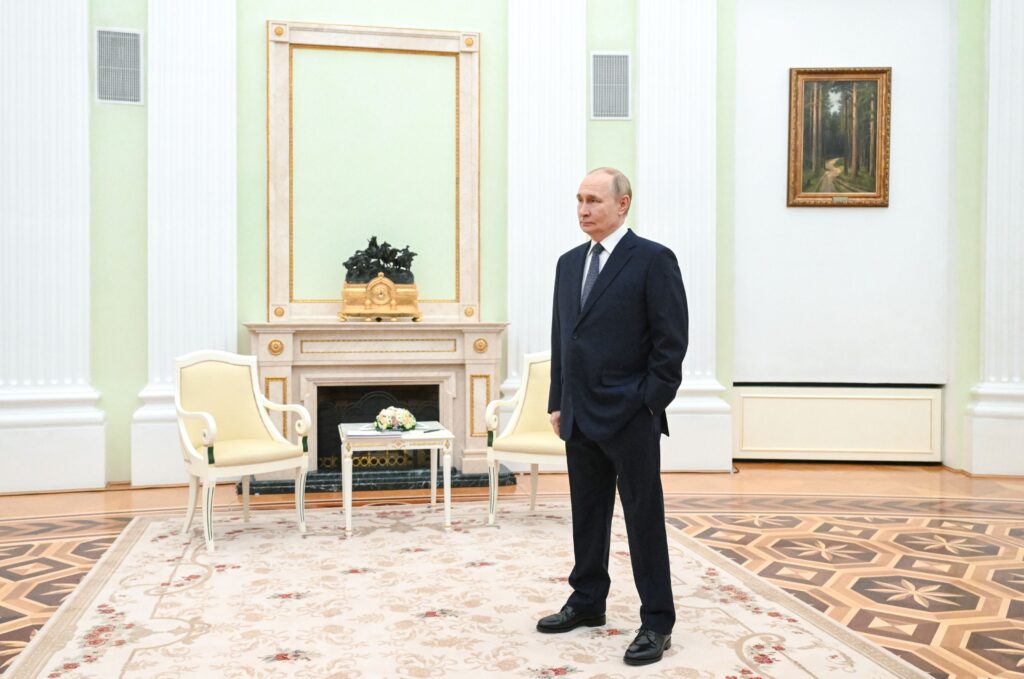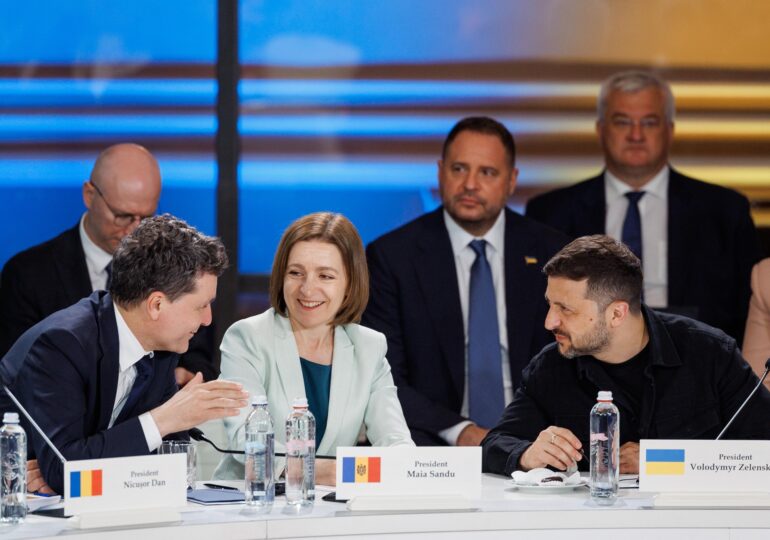Parliamentary elections in the neighboring country were seen by Moscow as an opportunity to at least partially take political control over Moldova, developing a stratified strategy to undermine the pro-European regime.
- Russia funded several political movements to suffocate society with small parties, in order to achieve a fragmentation of votes, preventing the Party of Action and Solidarity, founded by Maia Sandu, from consolidating.
- It created dozens of vote-buying networks with money transferred from Russia through illegal methods.
- Trained mercenaries to create disorder and violent protests, aiming to destabilize the government.
- Launched cyber attacks on institutions and agencies to disrupt the electoral process, including the counting and reporting of votes.
- Initiated a campaign of bomb threats in multiple polling stations abroad to scare people in order to deter them from voting.
- Started and supported a continuous disinformation campaign on social networks.
- All the methods and actions of Russian interference described above were also used in Romania during the presidential elections in November 2024.
"It was a complicated autumn. We had to defend Moldova. Russia's attacks were violent, and all digital infrastructure could collapse at any moment," recounted a cybersecurity expert about the situation in 2024. He did not want to reveal his identity due to the sensitivity of the subject.
"We were prepared to repel the attacks, and we succeeded, but the major issue was that we were used to Russia using the same digital infrastructure for the digital warfare for both Moldova and Romania," explained the specialist.
"The surprise was that shortly after returning home from Chișinău, we realized that Russia had built a special infrastructure for Romania. It was tough; for a while, we were under immense pressure," the cybersecurity expert further recounted, a few weeks ago, recalling the situation from last year.
The Unlearned Lesson of the Referendum
On October 20, 2024, the first round of the presidential elections and the referendum for joining the European Union took place in Moldova.
The Kremlin had two main objectives. First, to invalidate the referendum. Without a popular vote in favor of the country's accession to the European Union, Russia indirectly obtained a decision allowing it to argue that Moldova wants to remain in its political and economic sphere of influence, indefinitely postponing EU accession.
The second objective was to replace Maia Sandu, a strong pro-European president, with another political leader closer to the Kremlin.
Vladimir Putin did not achieve either of the objectives, but the confrontation was challenging. The referendum for EU accession passed by a narrow margin, with 50.35%, and Maia Sandu won a second term leading Moldova after two rounds of voting.
However, following the experience of the referendum in Moldova, neither at the European political level nor at the leadership level of Romania, did the leaders understand how complex, harsh, and costly the shadow confrontation with Russia is.
To derail the elections in Moldova, the Kremlin spent hundreds of millions of euros, funded Ilan Șor, a Moldovan oligarch, now a refugee in Moscow, who created complex and extensive networks for buying votes.
Cyberattacks, social media campaigns, attempts to transfer mercenary fighters to Moldova to provoke revolts were frequent and constant. The pressure from Moscow was enormous, with the goal being the political collapse of the country.
The Greatest Failure
On November 3, 2024, while some in Bucharest celebrated the success of protecting Moldova from Russia's violent attack, ensuring the fairness of the elections and the country's European path, Romania came under Kremlin's scrutiny, with Vladimir Putin considering the failure in Moldova as a consequence of Romania's and the European Union's political, logistical, and informational involvement.
According to several sources consulted over the past months, it emerged that immediately after the elections in Moldova, Romania became a target of the Kremlin.
It was the moment when all intelligence and influence networks in the country, controlled by Russia, aligned and launched a fierce campaign to create a political crisis in Bucharest by imposing a president manipulated by the Kremlin.
Unfortunately, the gravity and complexity of the operation were not perceived by the intelligence agencies, and their involvement in the country's political confrontation led to an institutional deadlock that caused the biggest national security failure recorded after Romania's accession to NATO and the European Union.
The responsibility for this failure lies with the country's president, prime minister, the leaders of both chambers of Parliament, and the leadership of all institutions and agencies involved in protecting citizens and critical infrastructure, led by the main intelligence services - SRI, SIE, DGIA.

When Călin Georgescu, a pro-Russian candidate practically unknown to the general public, won over 2 million votes, following an extensive institutional deadlock and manipulation of TikTok algorithms, a shock occurred at the global level.
Suddenly, the democratic governance system could be shattered by the interference of a powerful entity capable of massively utilizing social networks and manipulating algorithms for promoting political messages.
The Examination
The parliamentary elections in Moldova represented the great national security test, rejecting foreign interventions and protecting free elections for Moldova, Romania, and the European Union.
According to the preliminary election results, Moldovan society has demonstrated its strong will to join the European Union.
We congratulate Moldovan society and the competent authorities for the peaceful conduct of the elections, despite unprecedented interference from Russia, including vote-buying schemes and disinformation. These hybrid attempts aimed to undermine the country's democratic institutions and its European path. However, despite the various manipulative interference attempts to destabilize the country, Moldovan voters have once again shown that they will not allow their future in peace and freedom to be taken away.
Emmanuel Macron, President of France, Friedrich Merz, Chancellor of Germany, Donald Tusk, Prime Minister of Poland, joint statement
Russia invested hundreds of millions of euros to bring Kremlin-controlled formations and leaders to power in Chișinău.
The money was used illegally to buy votes, with Moscow's experts knowing that under conditions of legality and transparency, pro-Russian parties in Moldova had no chance in elections, due to demographic reasons (35% of the population is of Russian origin) or political reasons - the majority of citizens desire EU accession and to exit Russia's sphere of influence.

The examination succeeded, and Nicușor Dan can mark his first victory against the Kremlin, with Moldova's election protection systems yielding results.
Nothing would have been possible without the strength and determination of President Maia Sandu, who took enormous risks but managed to dismantle dozens of Russian influence networks, arrest Kremlin agents, and outlaw parties and groups that operated illegally and were funded underground, blatantly violating legal provisions.
All Those Who Helped
In order for the democratic system in Chișinău to resist and repel Moscow's strong attack, an alliance was formed between Moldova, Romania, and Ukraine, supported by France, Germany, and the United Kingdom, as well as by dozens of leaders of EU member states.
"These elections have shown that Russia's destabilizing activity is losing ground, while Moldova, from Europe, is gaining. Russia's subversive actions, constant disinformation - none of these worked. It is important that Moldova effectively defended itself against threats, together with all those who helped it," announced Volodymyr Zelenskyy in an official statement.
Additionally, Nicușor Dan, the President of Romania, in his congratulatory message sent on the occasion of the victory of the pro-European PAS party, stated that he understands how difficult the situation was in Moldova due to the immense pressure exerted by Russia to not lose its political influence over Chișinău.
"I congratulate the citizens of the Republic of Moldova for their mobilization and for the firm vote towards continuing your country's European path. You have written a page of history, and we know it wasn't easy. You made your voice heard, and you must be proud," stated the President of Romania, reassuring that our country will continue to support Moldova.
Although officially, no investigation has been launched into what happened and who is responsible for the massive national security breach in November 2024, something has changed, and at the institutional level, hybrid attacks, propaganda, and the threat of influence networks from Russia are taken more seriously, although there is still much to be done.

